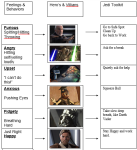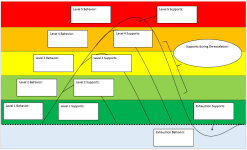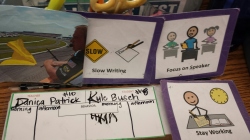Day 7 of ASD De-escalation Tips: Empower the Learner

When staff go through the diligent process of filling out an escalation cycle they need to remember to involve the most important person on the team: the student. As thought out as the staff’s approaches might be to support de-escalation, they can still be …








 Let’s do a quick review of the escalation cycle. The student begins at their baseline and everything is going well. The student is able to focus on work and perform …
Let’s do a quick review of the escalation cycle. The student begins at their baseline and everything is going well. The student is able to focus on work and perform …







